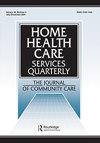O17.2 Exploring Freddie: Lessons from a Novel Virtual HIV PrEP Care Model in Canada
IF 1.2
Q4 HEALTH POLICY & SERVICES
引用次数: 0
Abstract
Background/PurposeTo combat the HIV Epidemic, the concept of pre-exposure prophylaxis (PrEP) has gained considerable traction since demonstrating efficacy in 2012 and approval in Canada in 2016. Unfortunately, this HIV prevention method has not been ubiquitously taken up by those most at risk for many reasons, including difficulty in accessing care. Innovation, and necessity during the COVID pandemic, has increased the use of technology with new care models providing 100% of PrEP care virtually.ApproachThis presentation will focus on the impacts and early findings of Freddie, a novel and entirely virtual PrEP care model in Canada focused on gender and sexual minority communities. This online health program connects those most at risk of HIV transmission with affirming prescribers across multiple provinces to break down physical and social barriers to PrEP initiation and ongoing use.Outcomes/ImpactFreddie has reached the benchmark of 1,000 patients in Canada, the majority of which have never been on PrEP before, representing a quick uptake in virtual PrEP services in Canada. The observations made thus far affirm theories that inclusive virtual care models can lead to increased access to STBBI prevention methods.Innovation and SignificancePresenters will discuss the innovative components of Freddie’s virtual care model, explore findings as they relate to PrEP uptake and initiation by speaking to its initial successes and challenges, as well as how it addresses PrEP access barriers in Canada. This includes Freddie’s focus on LGBTQ2S+ Canadians who are known to be at higher risk of HIV and historically have faced extraordinary barriers accessing sexual health care in inclusive settings. The intervention explored in this presentation continues to address such barriers through an innovative and accessible care model.O17.2探索弗雷迪:加拿大新型虚拟HIV PrEP护理模式的经验教训
背景/目的为了对抗艾滋病毒流行,暴露前预防(PrEP)的概念自2012年证明有效性并于2016年在加拿大获得批准以来获得了相当大的关注。不幸的是,由于许多原因,包括难以获得护理,这种预防艾滋病毒的方法并没有被那些风险最大的人普遍采用。在COVID大流行期间,创新和需求增加了技术的使用,新的护理模式几乎提供了100%的PrEP护理。本报告将重点介绍Freddie的影响和早期发现,Freddie是加拿大一种全新的、完全虚拟的PrEP护理模式,主要针对性别和性少数群体。这一在线健康项目将艾滋病毒传播风险最高的人群与多个省份的确认处方者联系起来,以打破开始和持续使用PrEP的物理和社会障碍。结果/影响freddie在加拿大已经达到了1000名患者的基准,其中大多数患者以前从未使用过PrEP,这代表了加拿大对虚拟PrEP服务的快速吸收。迄今为止所做的观察证实了包容性虚拟护理模式可以增加获得STBBI预防方法的理论。创新和意义演讲者将讨论弗雷迪虚拟护理模式的创新组成部分,通过讲述其最初的成功和挑战,以及如何解决加拿大PrEP获取障碍,探索与PrEP吸收和启动相关的发现。这包括弗雷迪对LGBTQ2S+加拿大人的关注,他们被认为是艾滋病毒风险较高的人群,并且在包容性环境中获得性健康保健的历史上面临着巨大的障碍。本报告探讨的干预措施继续通过创新和可访问的护理模式来解决这些障碍。
本文章由计算机程序翻译,如有差异,请以英文原文为准。
求助全文
约1分钟内获得全文
求助全文
来源期刊

HOME HEALTH CARE SERVICES QUARTERLY
HEALTH POLICY & SERVICES-
CiteScore
2.40
自引率
0.00%
发文量
18
期刊介绍:
Home Health Care Services Quarterly continues to publish important research on the cutting edge of home care and alternatives to long-term institutional care for the elderly, disabled, and other population groups that use in-home health care and other community services. The journal is aimed toward service providers and health care specialists involved with health care financing, evaluation of services, organization of services, and public policy issues.
 求助内容:
求助内容: 应助结果提醒方式:
应助结果提醒方式:


